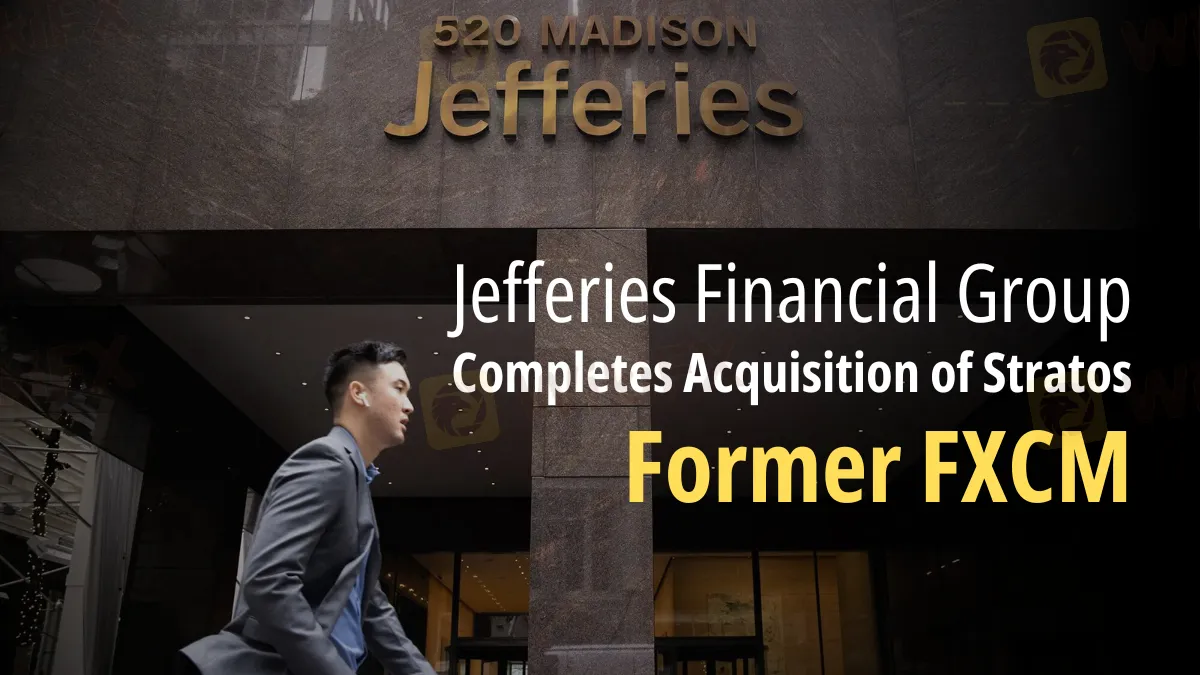Abstract:Jefferies Financial Group acquires Stratos Group International, enhancing its market stance with strategic prowess and creative financial engineering, marking a significant industry consolidation.

Jefferies Financial Group has completed the purchase of Stratos Group International, formerly known as FXCM Group, LLC (“FXCM”), which is a noteworthy milestone in the financial industry. This action strengthens Jefferies' position in the international financial market and is the pinnacle of a strategic drive that started in the fourth quarter of 2023.
With a rich history and development from FXCM, Stratos is now a fully integrated part of the Jefferies family, representing the latter's 100% ownership position. After certain Global Brokerage Inc. (“GLBR”) noteholders filed for involuntary bankruptcy against GLBR and its subsidiary, Global Brokerage Holdings LLC (“Holdings”), a sequence of deliberate actions resulted in this transaction. With a 50.1% voting equity stake in Stratos, Holdings positioned the company as a key player in the developing legal and financial drama.
Related news:
The company intervened to complete a foreclosure on GLBR's collateral with a 49.9% voting stake in Stratos that Jefferies had previously held. On September 14, 2023, GLBR effectively transferred 100% ownership of Stratos to Jefferies via this collateral. This action demonstrated Jefferies' strategic acumen as well as its dedication to safeguarding and stabilizing Stratos' future.
A $39.2 million senior secured term loan to Stratos was repaid as part of the complex financial processes associated with the deal, giving Jefferies a $5.6 million profit. The purchase did not, however, come without a price. After re-evaluating its 49.9% stake in Stratos, which it had previously owned, Jefferies recorded a $4.7 million loss. The disparity between the fair value at the time of purchase and the carrying value of the original investment was cited as the cause of this loss, underscoring the erratic nature of financial sector pricing.

The valuation technique was an important part of the buying process since it depended heavily on expected future cash flows. With projected revenues, expenses, and a risk-adjusted discount rate of 24.5%, this approach emphasizes the numerous aspects that must be considered in high-stakes financial transactions.
Surprisingly, apart from the non-monetary transaction linked with the senior secured term loan, the acquisition did not entail any monetary remuneration. This tactic highlights the creative financial engineering used in the transaction, which allowed Jefferies to acquire complete control of Stratos without incurring further costs.
Jefferies used purchase accounting rules to assess Stratos' total enterprise fair value. As a result of this procedure, Jefferies' balance sheet showed the inclusion of $5.5 million in goodwill and the realization of a $0.9 million gain, demonstrating the acquisition's tangible and intangible advantages.
This purchase is more than just a financial deal; it's a strategic consolidation in the financial services sector that will improve Jefferies' products and services. By incorporating Stratos into Jefferies' operations, the company hopes to improve its competitiveness in the market and spur innovation by using its combined resources and experience.
Jefferies' ability to effectively manage the complex legal and financial circumstances required to purchase a big company demonstrates its resilience and strategic expertise. As businesses adjust to shifting market circumstances and possibilities, it portends a sustained pattern of consolidation and realignment for the larger financial sector.
With the support of a major financial institution to help it negotiate the potential and difficulties of the global financial environment, Stratos' future under the Jefferies umbrella is now more promising. The industry is closely observing how this combination plays out and shapes the direction of financial services as the dust settles on this purchase.












